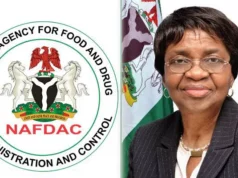The Presidential Advisory Council on Tuesday warned about dire economic consequences for Nigeria if the raging coronavirus infection was not contained as quickly as possible.
The council, which is chaired by Prof Doyin Salami, met with the President, Major General Muhammadu Buhari (retd.), at the State House, Abuja.
It said one of the immediate consequences, as shown in the crash of crude oil prices, was slower economic growth, adding that confidence in the economy would also be eroded.
The council, which urged the President to consider immediate cuts in the budget, observed that ultimately, Nigeria risked receding into another recession if concrete measures were not evolved to stabilise its economy.
The council added that global oil glut, rise in unemployment, depletion of foreign reserves and trade imbalance were other consequences.
A State House statement by Buhari’s media aide, Mr Femi Adesina, after the closed-door meeting, said these were among the observations the council made at the session.
The statement said, “Noting that many countries around the world may go into economic recession, the PEAC advocated hard work for Nigeria to keep its head above the waters.
“Recommending, among others, a possible revision of the 2020 budget, with priority spending on healthcare, re-prioritisation of expenditure on infrastructure to focus on projects nearing completion with pro-poor effects, curtailing recurrent expenditure, mobilising the private sector to strengthen health sector infrastructure, and boosting of government revenue, the PEAC stressed that the projections may seem dire, but the worst may be avoided with hard work and scrupulous implementation of policies.”
The council made the observations as Buhari at the session reassured Nigerians that his regime was working on measures to ensure that the country survived the crash in oil prices.
Buhari stated that he was well aware that crude prices had fallen to between $29 and $30 per barrel, well below the $57 used as the benchmark for the 2020 budget.









